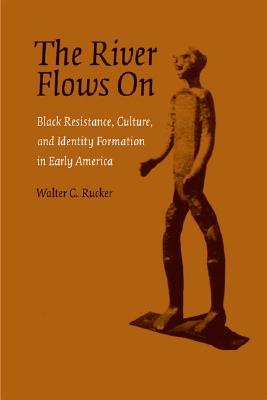The River Flows On: Black Resistance, Culture, and Identity Formation in Early America
List Price: $49.95
LSU Press (Jan 01, 2006)
Fiction, Hardcover, 288 pages
ISBN: 9780807131091Publisher: Louisiana State University Press
Description of The River Flows On: Black Resistance, Culture, and Identity Formation in Early America
The River Flows On is an impressively broad study of slave resistance in America, spanning the colonial and antebellum eras in both the North and South and covering all forms of recalcitrance, from major revolts and rebellions to everyday acts of disobedience. Walter C. Rucker analyzes American slave resistance with a keen understanding of its African influences while he also traces the emergence of an "African American" identity, orientation, consciousness, and culture. Rucker identifies African ethnic enclaves throughout the original thirteen colonies that produced unique modes of resistance, but he also points to the shared cultural heritage that facilitated collective action among both African- and American-born slaves. The ubiquitous belief in conjure and spiritual forces, the importance of martial dance and the drum, and ideas about the afterlife and transmigration all served as cultural bridges and fostered a sense of solidarity among slaves. Focusing on the role of African cultural and sociopolitical forces, Rucker gives in-depth attention to the 1712 New York City revolt, the 1739 Stono rebellion in South Carolina, the 1741 New York conspiracy, Gabriel Prosser’s 1800 Richmond slave plot, and Denmark Vesey’s 1822 Charleston scheme. He concludes with Nat Turner’s 1831 revolt in Southampton, Virginia, which bore the marks of both conjure and Christianity, reflecting a new, African American consciousness.
The River Flows On: Black Resistance, Culture, and Identity Formation in Early America is categorized under the following categories. You can browse these categories to find other titles filed in the same way:



